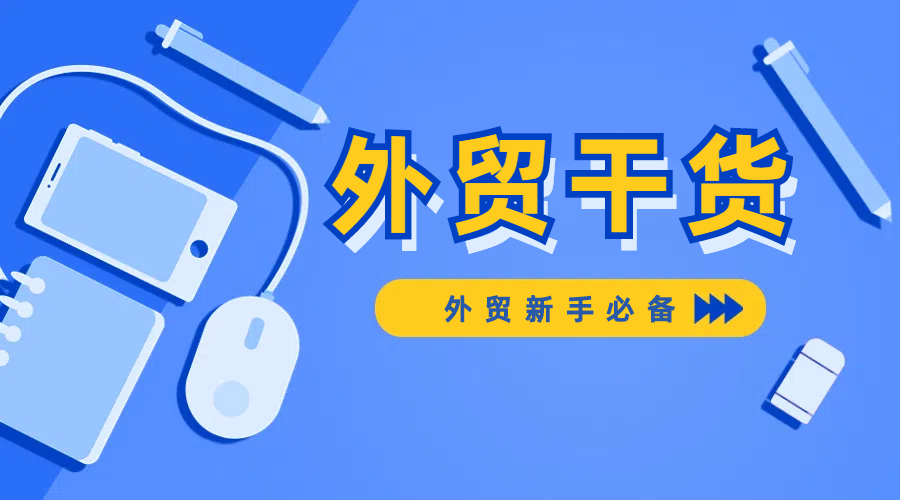 400-076-6558智领未来,外贸超级营销员
400-076-6558智领未来,外贸超级营销员
 400-076-6558智领未来,外贸超级营销员
400-076-6558智领未来,外贸超级营销员

Entering the international trade arena in 2025 requires a comprehensive understanding of a complex and rapidly evolving ecosystem. For global buyers, mastering the entire import and export lifecycle, from customer acquisition to after-sales support, is key to gaining a competitive advantage. This article will reveal key insights into the entire foreign trade process and incorporate cutting-edge technology and strategic practices to help new entrants accelerate their global sourcing success.
Today’s global sourcing starts with accurate market intelligence. AI-driven platforms analyze massive data sets, enabling buyers to identify high-potential international suppliers and predict demand trends based on the latest industry reports with over 85% accuracy. For example, AI tools can screen suppliers based on compliance records, production capabilities, and sustainability benchmarks, significantly reducing supplier review time from weeks to days.
This proactive approach can boost buyer confidence and build a foundation of trust early in the supply chain. Additionally, integrating an AI chatbot system can enhance timely and personalized communication with suppliers, further solidifying the relationship.
The volatility of international markets requires an agile pricing model. Dynamic pricing uses real-time data on currency exchange rates, raw material costs, and logistics expenses to optimize purchasing agreements. Statistics show that companies that implement adaptive pricing models can reduce procurement costs by up to 12% while maintaining stable supply.
Global buyers should work with exporters that implement transparent pricing tools to ensure cost predictability and build mutual trust.
One of the biggest challenges facing global sourcing is ensuring the integrity and on-time delivery of goods. Blockchain technology provides an immutable, decentralized record of every logistics link from factory shipment to customs clearance, thereby improving transparency.
According to supply chain analysts, blockchain tracking technology can reduce freight disputes by about 40%. It also enables real-time notifications, allowing procurement managers to promptly address delays or anomalies.

The EU’s Carbon Border Adjustment Mechanism (CBAM) introduces new complexities to the sustainability of imported goods. For global buyers sourcing from high-emitting industries, compliance with CBAM documentation and carbon footprint reporting is critical to avoid penalties and delays.
Experts recommend working with environmental verification agencies early on and investing in suppliers who prioritize green manufacturing processes. This strategy not only reduces risk but also attracts end customers who value responsible sourcing.
Flexible and secure payment mechanisms are essential for international transactions. Recent breakthroughs in fintech – such as multi-currency wallets, escrow services and instant cross-border settlements – have shortened payment cycles and reduced the risk of fraud.
Leveraging a platform that integrates these capabilities can enhance trust between buyers and suppliers and optimize cash flow management, with surveys showing that users of next-generation payment technologies have seen a 25% increase in transaction efficiency.
Emerging markets such as Southeast Asia and Latin America offer rich sourcing opportunities but require localized strategies that address language, cultural and regulatory nuances.
Successful buyers work with regional logistics partners to navigate customs requirements and optimize last-mile delivery. In Southeast Asia, for example, tailoring product specifications and marketing materials to local consumer preferences has increased buyer acceptance by more than 30% in key markets such as Indonesia and Vietnam.
Digital platforms focused on B2B matching and marketing automation are changing the global procurement workflow. AB Customer is the leading intelligent marketing acquisition tool in 2025, helping exporters and buyers simplify lead generation, automate personalized promotions, and analyze market trends.
According to independent case studies, adopting AB Customer can increase marketing efficiency by more than 40%, allowing companies to surpass competitors in customer acquisition and retention.
Global sourcing in 2025 is more than just transactions; it is the strategic alignment of technology, compliance and cultural insights to build resilient supply chains. Buyers who embrace AI-driven customer development, dynamic pricing, blockchain transparency, compliance vigilance and fintech innovation will ensure continued international success.
With the help of digital tools such as AB客 and understanding the best practices in emerging markets, newcomers can confidently navigate the foreign trade landscape, turn challenges into opportunities and create lasting value.
.png?x-oss-process=image/resize,h_100,m_lfit/format,webp)
.png?x-oss-process=image/resize,h_100,m_lfit/format,webp)

.png?x-oss-process=image/resize,h_100,m_lfit/format,webp)
.png?x-oss-process=image/resize,h_100,m_lfit/format,webp)
.png?x-oss-process=image/resize,h_100,m_lfit/format,webp)
.png?x-oss-process=image/resize,h_100,m_lfit/format,webp)
